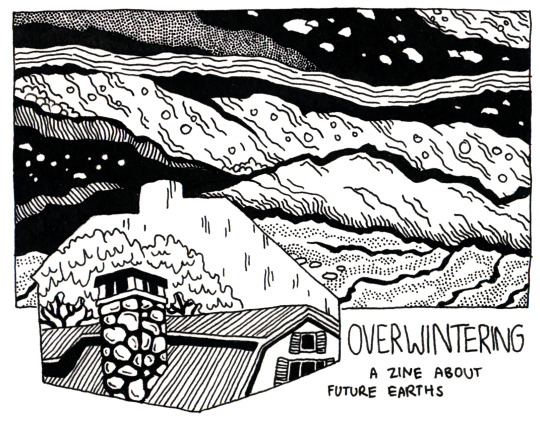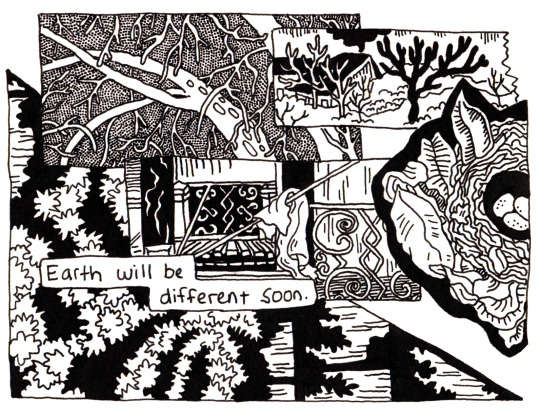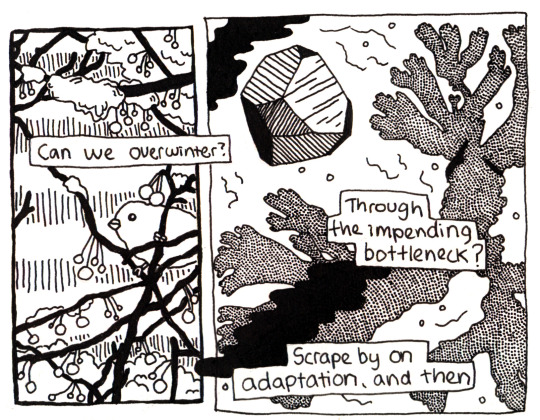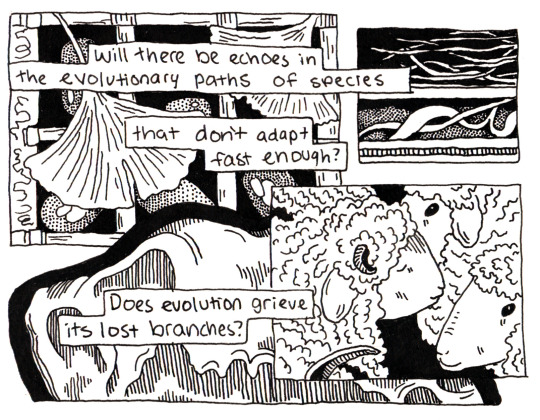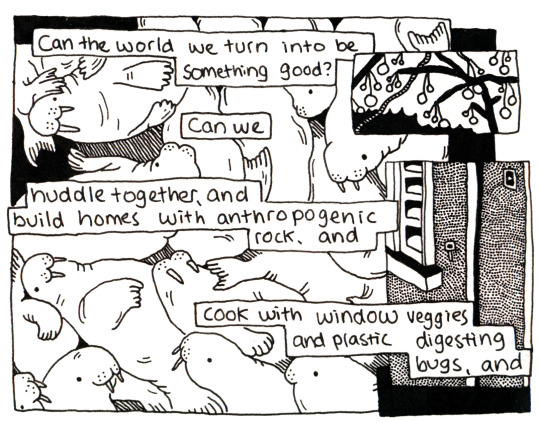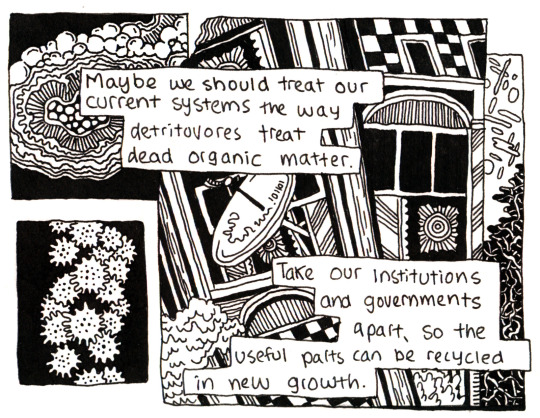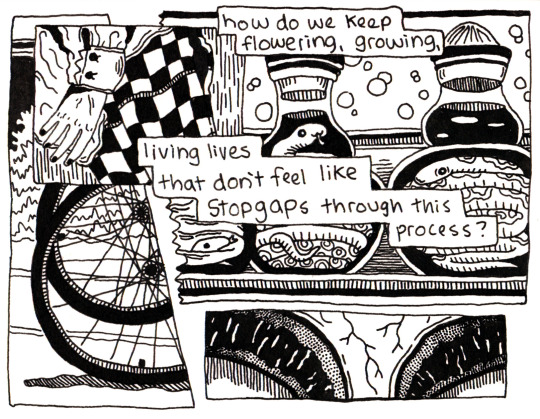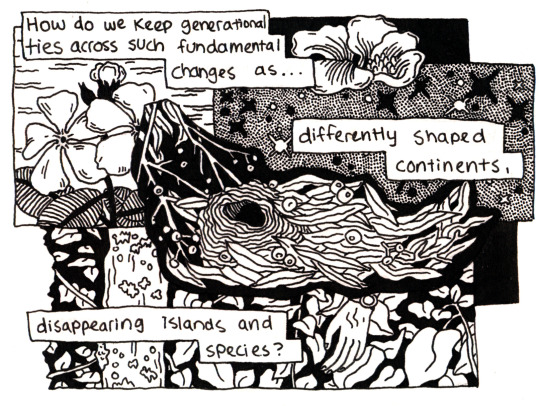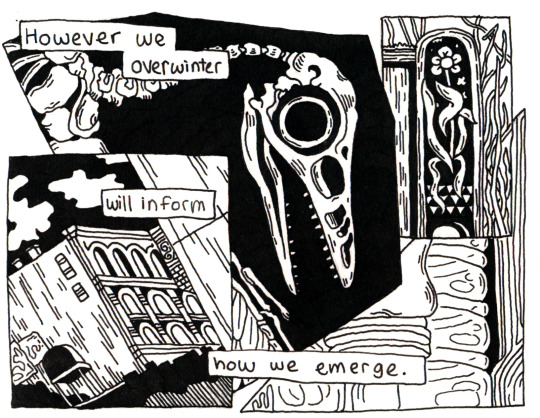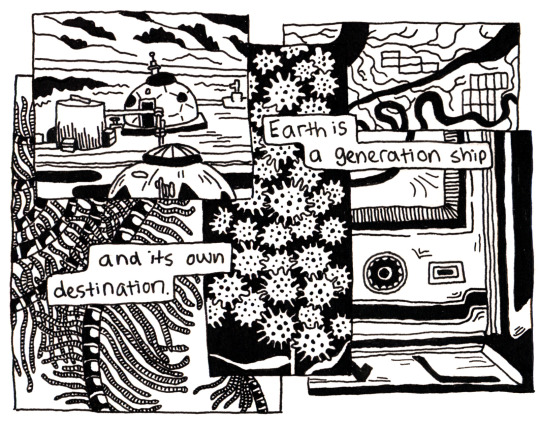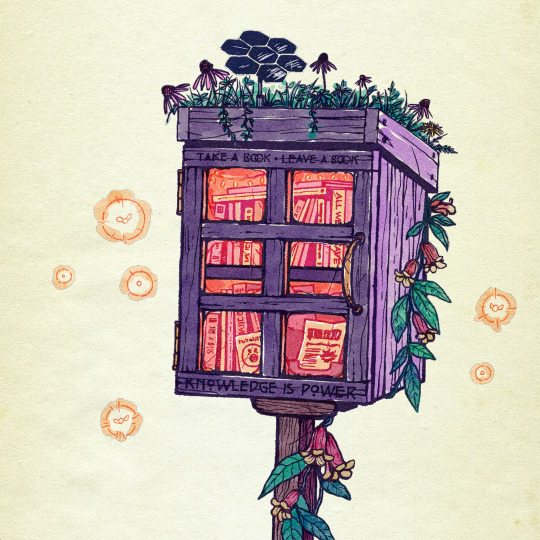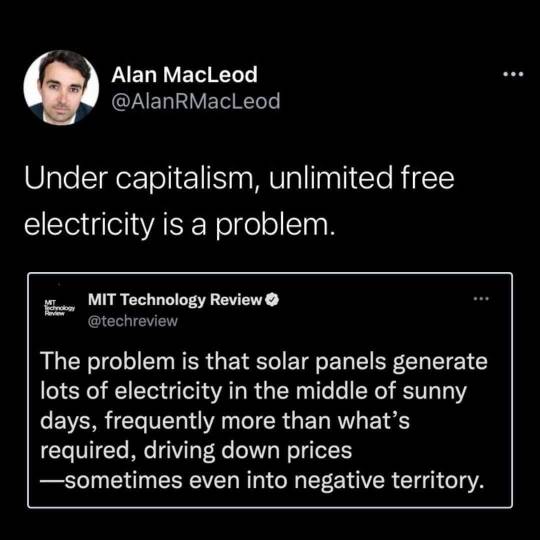Text
Yeah quiet quitting is great and all but have you tried chaotic working?
Like. I remember back in my grocery store cashier days I did so much crazy shit.
When WIC (Women, infants, and children voucher program to help low income mothers/families with children) people were in my line I would pretty much know who they were. Before the cards they had to tell us upfront they were WIC and show us their vouchers for what they were allowed to get (it was awful some times. Like. 2 gallons of milk. $4 worth of vegetables etc etc). They’d always have items hanging back, waiting to see what the total was and if they would have to take it off the belt.
I began to place the fruits/vegetables a certain way on the register scale so that like 1/2lbs of grapes read as like .28lbs or something. Then act shocked when I said that they still had X amount of lbs left. They got all their fruit and vegetables.
I think it started to kinda? Catch on to the women? Because I would have the same moms in my line month after month. And even after they switched to the cards (they worked like food stamp cards?) I’d still do the same thing. They were able to get more produce for whatever shitty max amount Indiana gave them.
Anyways. Be chaotic. It’s more fun that way.
177K notes
·
View notes
Text
So at my workplace, we fund a Food Is Free shelf. It's the basics: take what you need, give what you can - our town has a high level of poverty, there's a cost of living crisis, be the good you want to see in the world etc etc.
Today we had a guy knock on the door and ask if we had a plastic bag he could use to carry a few things - I said sure, got him a plastic bag, and he started packing up his 2 rolls of toilet paper, his 3 or 4 foodstuff items. He said he'd been to a funeral out of town (1500 kms away) and spent his paycheck on fuel - he was only broke till Friday, he said.
And I said, well I'm glad we could help, it's why we have the shelf. We want the community to use it.
And he said:
But people ABUSE it! I've seen people take heaps of stuff from it - and they don't even have kids or anything. And it's fair enough, some people are struggling until the next paycheck, but other people just ABUSE it. You need a sign that says TAKE ONE ITEM ONLY or something. I've taken something from here maybe twice, but I've seen people coming round every week! I've even put stuff on the shelf! Yeah, you need CAMERAS or something. People abuse it.
So here is a man who is actively utilising a public resource that we created to support our local community...And yet he is so brainwashed by capitalism into thinking that people don't deserve basic needs - if they're not working hard, or maybe they're struggling but they don't have it As Bad as others, or they're using a FREE RESOURCE more often than HE thinks is acceptable. He thinks that we should use security cameras to crack down on people "STEALING" from the Food is FREE shelf. Like he's more worthy, like he's a better person, because he doesn't need as much help as others might.
Sometimes, when something is free, people might abuse it. But isn't it better to offer the support to people who need it? To offer an opportunity for people to get back on their feet (even if they're only broke till Friday)? To provide help, no questions asked and no conditions needed?
So what if people abuse it - isn't it worth it if helps someone?
21K notes
·
View notes
Text

I'm doing it gang, I've spent stupider gardening money before like when I dropped $300 on shade loving perennial bulbs only to learn they were also plants that rotted with wet feet and all immediately died in my swampy gumbo soil
I'm buying two firefly petunias. I've never grown petunias much because where I live they're a winter annual but fuck it I'll grow them as an indoor plant I certainly have the sun to do it.
They're supposed to ship to me in April, I'll report back on if they immidiately die or this is the coolest thing I own. My biochemical engineering design project was using a similar chemical pathway to modify bacteria to glow in the presence of specific toxins so I absolutely need glowing petunias in my window box
12K notes
·
View notes
Text
I think so many people are so deeply alienated from themselves that they have no clue how to exercise their free will and autonomy. For some, this alienation runs so deep that they are afraid of their own autonomy and humanity. It is completely understandable why one would have those feelings, but it can be worrisome.
I want to help others who feel this way, so here are small things I have done to exercise my free will:
Add "guilty pleasure" songs to playlists and actually listen to them (I have a ton of late 1990s-early 2000s music I listen to now proudly that I never listened to in the past out of shame)
Getting the décor item, bath set, bed spread, ect. in the patterns you like, even if it's "childish" (I got a dinosaur-themed wastebasket from the kids' décor section and I adore it)
Taking a new route to get to a place you go to often
Eat dessert first
Celebrate well, and often
Collect things that are "odd" or don't seem like an "acceptable" thing to collect (somebody on my "for you" page collects dandelion crayola crayons and it was so cool!!!!!!)
Incorporate one new piece in an outfit you wear frequently (e.g., a new chain, a necklace, ribbons, bracelets, ect.). Challenge yourself to add onto the outfits if you feel up for it.
Sing along to songs without worrying that you sound "good" or your intonation is completely accurate
Read a book from a genre you weren't allowed to read as a kid (comics, thrillers, mysteries, anything!)
Walk without having a specific destination or goal
Pick up a new craft without expecting yourself to master it or to ever be "good" enough. Get your hands messy.
I don't want to shame anybody for not feeling as though they have free will or that they are exempt from exercising it. However, I wanted to give ideas so that you might read this list and find your own ways to express your intrinsic autonomy and will. You deserve to be a person, to feel alive, not just living. That is what our lives are for.
12K notes
·
View notes
Text
i think it's pretty awesome how all public transport is free actually, it's like really nice of them how you can just not pay if you don't feel like it or can't afford it
48K notes
·
View notes
Text

The website for all of the bomb factories being listed in this video below:
The engineers, rocket scientists, metalworkers working there would've been building better subjects if they weren't hired into making BOMBS FOR ISRAEL TO KILL INNOCENT PALESTINIANS. Some of these factories listed there can be a part of normal everyday things and those kinds of people have jobs , but there are offices and factories across every state that are from weapon companies, great people that are in the aforementioned topics above shouldn't be working with a company that makes WEAPONS. Go find and boycott the factories that are making the bombs for Israel, not the ones that are making other things aside from bombing.
A quote from this video:
"The people who are protesting weapons factories aren't against people having jobs or feeding families. They are against a system which forces people to make weapons in order to feed their families."
7K notes
·
View notes
Text
How people in the USA loved nature and knew the ways of the plants in the past vs. nowadays
I have been in the stacks at the library, reading a lot of magazine and journal articles, selecting those that are from over fifty years ago.
I do this because I want to see how people thought and the tools they had to come up with their ideas, and see if I can get perspective on the thoughts and ideas of nowadays
I've been looking at the journals and magazines about nature, gardening, plants, and wildlife, focusing on those from 1950-1970 or thereabouts. These are some unstructured observations.
The discourse about spraying poisons on everything in your garden/lawn has been virtually unchanged for the past 70 years; the main thing that's changed is the specific chemicals used, which in the past were chemicals now known to be horribly dangerous and toxic. In many cases, just as today, the people who opposed the poisons were considered as whackos overreacting to something mostly safe with a few risks that could be easily minimized. In short, history is not on the pesticides' side.
Compared with 50-70 years ago, today the "wilderness" areas of the USA are doing much better nowadays, but it actually appears that the areas with lots of human habitation are doing much worse nowadays.
I am especially stricken by references to wildflowers. There has definitely been a MASSIVE disappearance of flowers in the Eastern United States. I can tell this because of what flowers the old magazines reference as common or familiar wildflowers. Many of them are flowers that seem rare to me, which I have only seen in designated preserves.
There are a lot more lepidopterans (butterflies and moths) presumed to be familiar to the reader. And birds.
Yes, land ownership in the USA originated with colonization, but it appears that the preoccupation with who owns every little piece of land on a very nitpicking level has emerged more recently? In the magazines there is a sense of natural places as an unacknowledged commons. It is assumed that a person has access to "The creek," "The woods," "The field," "The pond" for simple rambling or enjoyment without personally owning property or directly asking permission to go onto another person's property.
There is very little talk of hiking and backpacking. I don't think I saw anything in the magazines about hiking or going on hikes, which is strange because nowadays hiking is the main outdoor activity people think of. Nature lovers 50-70 years ago described many more activities that were not very physically active, simply watching the birds or tending to one's garden or going on a nice walk. I feel this HAS to do with the immediately above point.
Gardening seems like it was more common, like in general. The discussion is about gardening without poisons or unsustainable practices, instead of trying to convince people to garden at all.
Overall, the range of animals and plants culturally considered to be common or familiar "backyard" creatures has narrowed significantly, even as the overall conservation status of animals and plants has improved.
This, to me, suggests two things that each may be possible: first, that the soils and environments of our suburbs and houses have sustained such a high level of cumulative damage that the life forms they once supported are no longer able to live, or second, that our way of managing our yards and inhabited areas has become steadily more destructive. Perhaps it may be the case that the minimum "acceptable" standard of lawn management has become more fastidious.
In conclusion, I feel that our relationship with nature has become more distant, even as the number of people who abstractly support the preservation of "wilderness" has increased. In the past, these wilderness preservation initiatives were a harder sell, but somehow, more people were in more direct contact with the more mundane parts of nature like flowers and birds, and had a personal relationship with those things.
And somehow, even with all the DDT and arsenic, the everyday outdoor spaces surrounding people's homes were not as broadly hostile to life even though the people might have FELT more hostile towards life. In 1960, a person hates woodpeckers, snakes and moths and his yard is constantly plagued by them: in 2024, a person enjoys the concept of woodpeckers, snakes and moths but rarely sees them, and is more likely to think of parks and preserves as the place they live and need to be protected. Large animals are mostly doing better in 2024, but the littlest ones, the wildflowers and bugs and birds, have declined steeply. It's not because "wilderness" is less; it seems more because non-wilderness has declined in quality.
2K notes
·
View notes
Text
One of the unfortunate habits you may pick up as an aspiring young engineer is hoarding the detritus of things you take apart.
When you need parts, very often it's easier and cheaper to track down a low-cost consumer appliance that contains the actual thing you want and which was made with the full benefits of the economies of scale. Then you take it home, and tear the guts out so you can sate your dark passenger, usually by giving it some kind of lithium battery, transformer, regulator, or motor. However you now face an all new problem: what do you do with the REST of your now useless item.
You could throw it away, but that feels wasteful, you bought it after all, and there's still stuff in here! Surely you'll find something to do with *checks notes* an AC resistive heating element, an unlabelled microcontroller chip made by a company that went out of business before you were born, the hollowed out metal carcass of a Sony Walkman, and twelve more horrible surface-mount push-buttons.
So you put it in The Pile. You always have The Pile. It is a cupboard, or box, or drawer, or corner of workshop which contains the ashes of your efforts, things people brought to you for repair that they then forgot about, cables you cut in half because you needed one side but not the other, antique computer parts that succumbed to the passing of time, dozens of unlabelled sealed tubes from unidentified machines you found on the side of the road outside that government research facility.
A few weeks ago I finally threw out some parts I had taken out of things when I was an honest to god infant, I found a solar panel I stole from a garden light (that was definitely still in working order) when I was 8, and a motor scavenged from a CD player when I was 12, and even my first ever capacitor (which I decided to keep, for sentimental reasons). All of this was still in my first The Pile, a little orange box my parents got me when it became clear that someone would get injured if I just left it all on my floor and desk. Well, I got an engineering degree in the end, so they can safely say they were "encouraging my creativity and interests" rather than "enablers."
Someday you will find something you need in The Pile, and it will all be worth it. You will think back to when you were just a wee lass and you stripped your parents' vacuum cleaner after your cousin tried to use it to clean up a spilled bowl of warm mac'n'cheese from the carpet, and you'll realize that the kickstart capacitor in there is JUST right for the crusty high-voltage multiplier you're building. And while you're at it may as well grab some spare diodes and switches you'll need later and oh, what's this, a fully intact motor core? that's got some nice copper coils and metal laminate, and before you know it you're working on a totally different but equally dangerous project and once again scrolling through Facebook Marketplace to see if anyone is selling a broken CRT TV you can take a flyback transformer out of, the chassis of which will no doubt end up right back in The Pile, and the cycle begins again.
437 notes
·
View notes
Text
In much better and happier news Bison after decades of hard work and conservation efforts from indigenous organizations have finally been released back on our lands after 150 years.
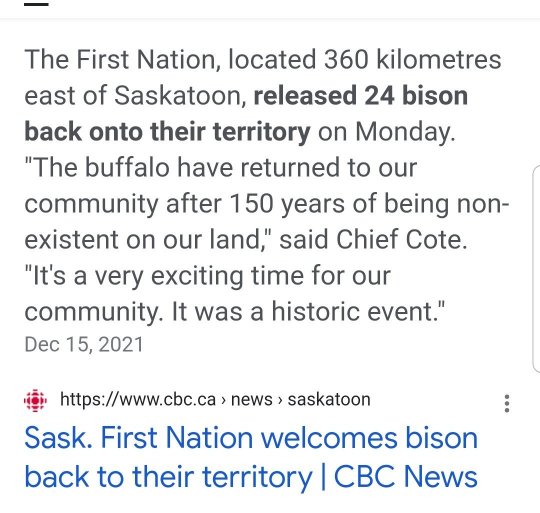

I saw this video live and cried my eyes out. This is so important. Despite it all we survived. We're still here and the possibility to heal the land and ourselves is always there even if it will take time.
Edit: I'm very happy that people love this post but my other less happy educational posts are also just as important
78K notes
·
View notes
Text
women should lift weights because it prevents osteoporosis in old age and makes you a more capable person in everyday life please shut up about butts and waists and hourglasses i'm going to fucking kill
67K notes
·
View notes
Text
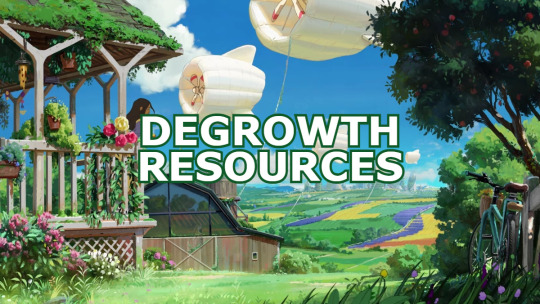
Degrowth basics
"The word degrowth stands for a family of political-economic approaches that, in the face of today’s accelerating planetary ecological crisis, reject unlimited, exponential economic growth as the definition of human progress."
What is Degrowth? | Caracol DSA
Why degrowth is the only responsible way forward | OpenDemocracy
Degrowth and MMT: A thought experiment
We Need A Fair Way To End Infinite Growth | Current Affairs
Degrowth: A Call for Radical Abundance | Common Dreams
Can degrowth save us and the planet? | Nottingham Trent
Defending limits is not Malthusian | Undisciplined Environments
Can We Have Prosperity Without Growth? | New Yorker
The Urgent Case for Shrinking the Economy | The New Republic
Giving Up on Economic Growth Could Make Us Cooler and Happier | The New Republic
A guide to degrowth: The movement prioritizing wellbeing in a bid to avoid climate cataclysm | CNBC
What is ‘degrowth’ and how can it fight climate change? | Popular Science
Enough for Everyone | Yes! Magazine
Toward a Post-Capitalist Future: On the Growth of “Degrowth” | Lit Hub
All we are saying is give degrowth a chance | The RSA
A pathway out of environmental collapse | newsroom
On Technology and Degrowth | Monthly Review
What is degrowth (and more importantly, what is it not)? | META
Green growth
"There is no empirical evidence that absolute decoupling from resource use can be achieved on a global scale against a background of continued economic growth."
Is Green Growth Possible? | Jason Hickel & Giorgos Kallis
The Myth of America’s Green Growth | Foreign Policy
The decoupling delusion: rethinking growth and sustainability | The Conversation
Is green growth happening? | Uneven Earth
Green Growth | Uneven Earth
The Delusion of Infinite Economic Growth | Scientific American
Degrowth is not austerity – it is actually just the opposite | Al Jazeera
A response to Paul Krugman: Growth is not as green as you might think | Timothée Parrique
Deceitful Decoupling: Misconceptions of a Persistent Myth | Alevgul H. Sorman
Degrowth isn’t the same as a recession – it’s an alternative to growing the economy forever | The Conversation
Degrowth and the left
"In the middle of an ecological emergency, should we be producing sport utility vehicles and mansions? Should we be diverting energy to support the obscene consumption and accumulation of the ruling class?"
The Left should embrace degrowth | New Internationalist
Ecosocialism is the Horizon, Degrowth is the Way | The Trouble
Degrowth: Socialism without Growth | Brave New Europe
Toward an Ecosocialist Degrowth: From the Materially Inevitable to the Socially Desirable | Monthly Review
For an Ecosocialist Degrowth | Monthly Review
Degrowth and Revolutionary Organizing | Rosa Luxemburg NYC
The necessity of ecosocialist degrowth | Rupture
Degrowth is Anti-Capitalist | Protean Mag
Degrowth Communism | PPPR (Part one | Part two | Part three)
Economic Planning and Degrowth: How Socialism Survives the 21st Century | New Socialist
Degrowth and the South
"Southern countries should be free to organize their resources and labor around meeting human needs rather than around servicing Northern growth."
Who is afraid of degrowth? A Global South economic perspective | IBON Foundation
The anti-colonial politics of degrowth | Jason Hickel
Unlearning: From Degrowth to Decolonization | Rosa Luxemburg NYC
Degrowth requires the Global South to default on its foreign debts | Resilience
Journals/Reports
Degrowth: a theory of radical abundance | Jason Hickel
A systematic review of the evidence on decoupling of GDP, resource use and GHG emissions, part II: synthesizing the insights
What does degrowth mean? A few points of clarification | Jason Hickel
Providing decent living with minimum energy: A global scenario | Global Environmental Change
Urgent need for post-growth climate mitigation scenarios | Nature Energy
Degrowth and critical agrarian studies | Julien-François Gerber
Decoupling debunked – Evidence and arguments against green growth as a sole strategy for sustainability | European Environmental Bureau
Incrementum ad Absurdum: Global Growth, Inequality and Poverty Eradication in a Carbon-Constrained World | David Woodward
Degrowth can work — here’s how science can help | Nature
A New Political Economy for a Healthy Planet | Jason Hickel
Planning beyond growth. The case for economic democracy within limits
Millionaire spending incompatible with 1.5 °C ambitions | Cleaner Production Letters
Is green growth happening? An empirical analysis of achieved versus Paris-compliant CO2–GDP decoupling in high-income countries | The Lancet
Books
Exploring Degrowth: A Critical Guide | Pluto Press
A People's Green New Deal | Max Ajl
Less is More: How Degrowth Will Save the World | Jason Hickel
Breaking Things at Work: The Luddites Are Right About Why You Hate Your Job | Verso Books
The Future is Degrowth: A Guide to a World Beyond Capitalism | Verso Books
The Imperial Mode of Living: Everyday Life and the Ecological Crisis of Capitalism | Verso Books
Marx in the Anthropocene: Towards the Idea of Degrowth Communism | Kohei Saito
Degrowth & Strategy: how to bring about social-ecological transformation
27 Essays and Thoughts on Degrowth | Giorgos Kallis
Videos
Yes To Limits To Growth! | The Other School
How Degrowth Can Save the World | Andrewism
How We End Consumerism | Our Changing Climate
Demystifying Degrowth | Rosa Luxemburg NYC
Degrowth is not Austerity | John the Duncan
Degrowth and Ecosocialism | Planet: Critical
Degrowth in 7 minutes: Fighting for climate by living better | Think That Through
The Future is Degrowth (w/ Aaron Vansintjan) || SRSLY WRONG
"Degrowth means power to the working class!"with Jason Hickel | GND Media
Others
degrowth.info
Degrowth Journal
Doughnut Economics
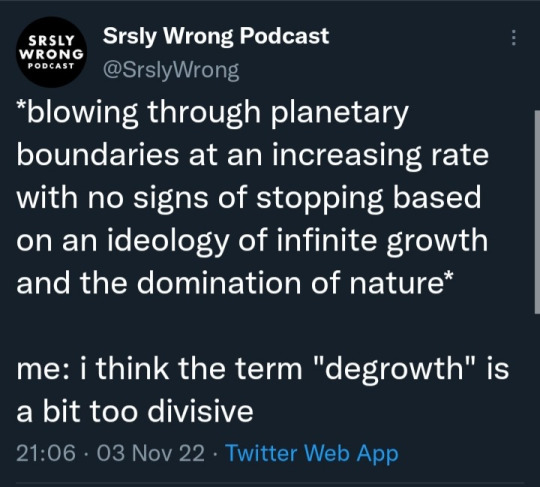
2K notes
·
View notes
Text
The Amazon grocery stores which touted an AI system that tracked what you put in your cart so you didn't have to go through checkout were actually powered by underpaid workers in India.
Just over half of Amazon Fresh stores are equipped with Just Walk Out. The technology allows customers to skip checkout altogether by scanning a QR code when they enter the store. Though it seemed completely automated, Just Walk Out relied on more than 1,000 people in India watching and labeling videos to ensure accurate checkouts. The cashiers were simply moved off-site, and they watched you as you shopped.
According to The Information, 700 out of 1,000 Just Walk Out sales required human reviewers as of 2022. This widely missed Amazon’s internal goals of reaching less than 50 reviews per 1,000 sales
A great many AI products are just schemes to shift labor costs to more exploitable workers. There may indeed be a neural net involved in the data processing pipeline, but most products need a vast and underpaid labor force to handle its nearly innumerable errors.
10K notes
·
View notes

